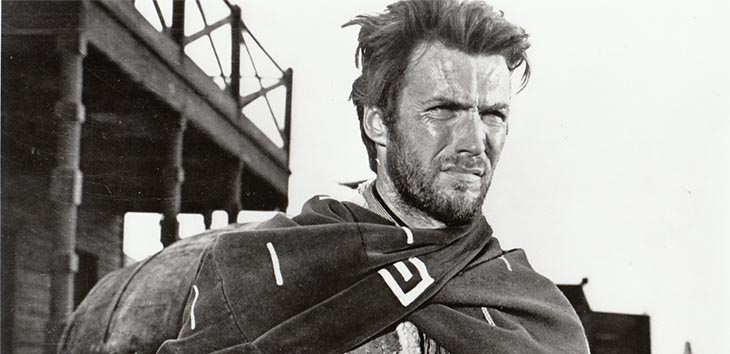Celebrity Defamation Lawsuit: Eastwood Sues CBD Companies for Using Name and Likeness
 Clint Eastwood, the 90-year-old entertainer, is suing several cannabis companies for using his “name and likeness” to market CBD products. The case is a textbook celebrity defamation lawsuit, and the star will likely win.
Clint Eastwood, the 90-year-old entertainer, is suing several cannabis companies for using his “name and likeness” to market CBD products. The case is a textbook celebrity defamation lawsuit, and the star will likely win.
If you’re a marketer living on the regulatory edge, take five minutes to read about this case. It’s a cautionary example of “too far” promotional tactics.
Clint Eastwood Suing CBD Company for Defamation
A Los Angeles federal court is presiding over a lawsuit filed by Clint Eastwood. The venerated actor-turned-director is suing several cannabis brands, including Sera Labs Inc, Greendios, and Four Our Vets LLC, for various marketing violations and defamation.
According to the claim, without permission, the defendants used Eastwood’s picture and falsely attributed quotes about CBD to the star. One promotional piece included a concocted story about him quitting the movie business to build a CBD empire, and at least one of the defendants used a clickbait headline that read: “Clint Eastwood Exposes Shocking Secret Today.”
Notably, Eastwood’s attorney included a metatag claim. The lawsuit reads:
‘By using Mr Eastwood’s name in hidden metatags, defendants have figuratively posted a sign with Mr Eastwood’s trademark in front of their online store to attract customers and caused the consuming public to believe that Mr Eastwood is associated with and/or endorsed… defendants’ CBD products, when no such association actually exists.’
The suit also claims that “Mr. Eastwood has no connection of any kind whatsoever to any CBD products.”
Ultimately, the Unforgiven director is accusing the defendants of illegally profiting off his “name and likeness.” He’s also included a defamation charge, meaning he believes his opponents publicly and knowingly spread lies that damaged his reputation.
To redress the wrong, Eastwood wants the brands to forfeit all profits, income, and benefits resulting from their malfeasance. His attorney also points out:
‘While the purpose of these lawsuits is to halt and remedy ongoing defamation and misappropriation violations, they should also serve as a reminder to customers to be cautious when they see a too-good-to-be-true celebrity endorsement.’
Who Can Sue for Defamation?
Who can sue for defamation? Individuals, businesses, organizations, and when Pluto aligns with Saturn, even governments can sue for libel, which is written defamation, and slander, which is spoken defamation. However, the rules change depending on the plaintiff’s social or professional status.
That’s right: your clout and job determines what you must prove to win a slander or libel lawsuit.
In the simplest terms, public figures — including government employees if the suit is job-related — must meet higher burdens of proof. Businesses also must meet a different set of standards than individuals to win defamation claims.
Will Clint Eastwood Win His Defamation Lawsuit Against CBD Company?
Eastwood’s case appears straightforward. Unless the defendants have evidence proving that Clint agreed to be their spokesperson, he’ll likely win. Even though Eastwood is a public figure who must meet the higher “actual malice” standard, he will probably come out on top in this celebrity defamation lawsuit because the violations are egregious.
In short: You can’t use a celebrity’s name or likeness without their approval. And risking it could land you a multi-million-dollar lawsuit that wipes out any profits.
Celebrity Defamation FAQ
What Is the Actual Malice Standard?
What is the actual malice standard? When public figures sue for slander or libel, they must meet a higher burden of proof than private persons. Specifically, famous folks must demonstrate that the defendant knew their statements were untrue but published or broadcast them anyway. The actual malice standard makes it difficult for celebrities to win defamation lawsuits.
What Counts as a “Celebrity” for a Defamation Lawsuit?
As we’ve discussed, celebrities are held to a higher standard if they’re suing for slander or libel in the United States. But what qualifies as a public figure for a defamation lawsuit? The answer is jurisdictionally dependent. But generally speaking, in stateside courts, celebrities — both local and international — politicians, and government employees, when the gravamen of the case is connected to the job, all qualify.
What Was the First Celebrity Defamation Lawsuit in the United States?
Since homo sapiens discovered the art of argumentation, courts have been hopping! But the first case to solidify “celebrity defamation” standards into United States case law was New York Times v Sullivan, a 1964 U.S. Supreme Court case.
A dispute between the New York Times and an Alabama public safety commissioner, L. B. Sullivan, the case centered on an advertisement paid for by the Committee to Defend Martin Luther King. Click here to read more about the landmark case.
Is a Defamation Lawsuit Worth It?
If a clear case of defamation has occurred, as appears to be the case in Clint Eastwood’s celebrity defamation suit against the CBD companies, a slander or libel lawsuit is definitely worth the effort. But remember that truth is a rock solid defense against defamation. So if your adversary isn’t lying, consult a defamation lawyer about the specifics of your case. They’ll be able to tell you if you have a case or not.
If someone publicly disseminates true but private information about you — online or off — you may be able to use other torts to seek retribution. Again, it’s best to contact a defamation lawyer to discuss the details of your specific situation. After hearing the particulars, he or she can guide you down the right path.
To read about other celebrity defamation lawsuits, head here.





